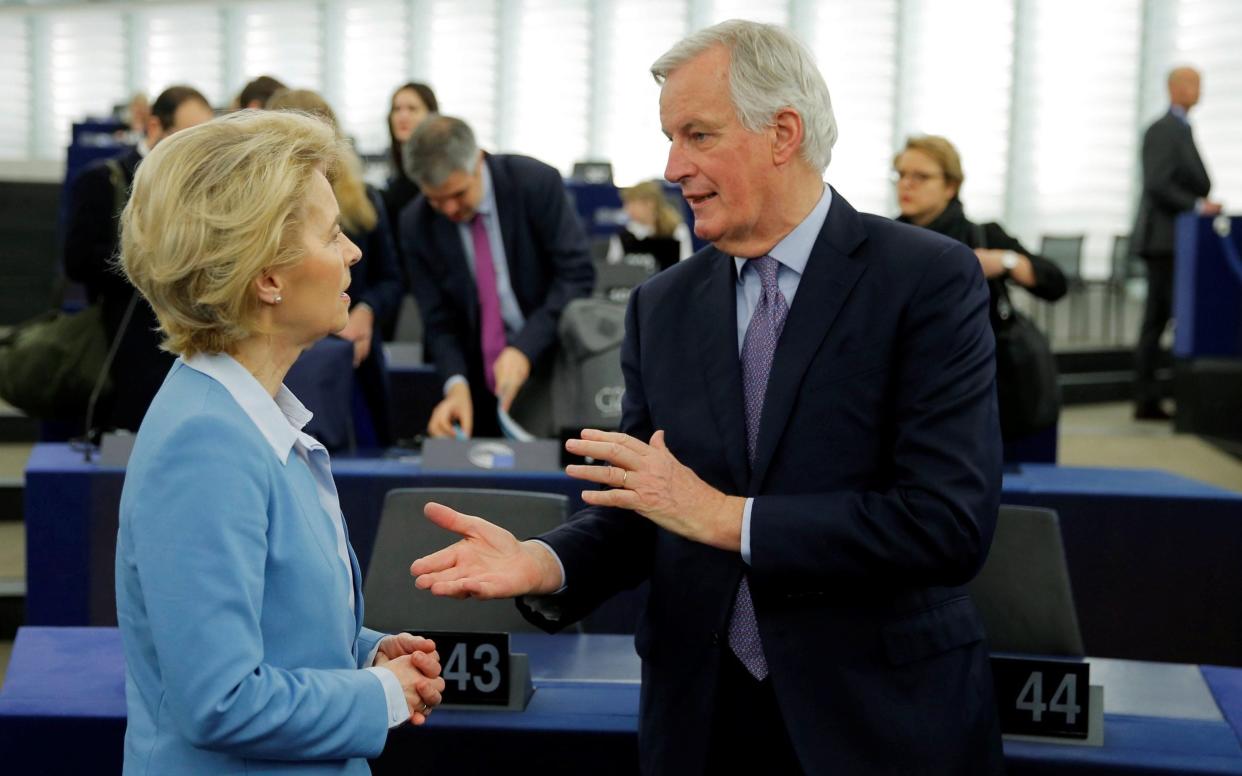Faced with the EU's outrageous demands, Britain has every right to play tough

Britain’s “primary objective” in trade talks with the EU is to “restore our economic and political independence from January 1”, said Downing Street yesterday. So Boris Johnson won’t extend the Brexit transition period at the end of the year, even if no free trade agreement (FTA) has been struck. EU bureaucrats, meanwhile, show little interest in securing a mutually beneficial FTA. Brussels’ priority is to shield the bloc from competition, while discouraging others from following the UK out the door.
The Prime Minister will today finalise the UK’s negotiating strategy before UK-EU trade talks start next week. Johnson will clearly walk away with no FTA rather than accept European Court of Justice (ECJ) oversight and regulatory alignment.The EU, in contrast, struggled to reach a common position, finally agreeing one last night. Arguments about the Brexit-shaped hole in the EU budget – the UK paid £13.2 billion in 2018 – are becoming bitter. And President Emmanuel Macron, lagging Marine Le Pen’s hard Right in the French polls, wants tougher conditions imposed on any UK FTA.
Berlin, though, knows that billions of euros of profit and millions of EU jobs rely on the bloc’s €125 billion UK trade surplus. If cool minds prevail over political spite, the EU has much to gain from a UK trade deal. That’s why we’ll see a genuine negotiation – in which Britain, free of its anti-Brexit parliament, holds strong cards.
Had Johnson accepted Leo Varadkar’s ghastly backstop, there would be no negotiation. The entire UK would be locked in the EU’s customs union, still paying billions each year but with no say, and unable to clinch trade deals elsewhere. The eurocrats could have extracted endless concessions, before finally granting permission to leave. Yet even with the all-UK backstop, and Varadkar gone, the EU is still acting in bad faith.
Britain wants a Canada-style FTA with no regulatory “level playing field”. In 2017, EU chief negotiator Michel Barnier produced a chart showing that was the likely end point, adding that a “bespoke” deal was “a non-starter”. Now Barnier insists a Canada deal is “unavailable” and any UK-EU deal must be “unique” – a total volte-face.
He says the UK’s request for a zero-tariff deal is “unprecedented”. The EU-Canada deal does retain some tariffs, but around 98 per cent are gone. So let’s exclude sensitive items, Barnier, and do a deal. The UK is close to and “economically intertwined” with the EU, as Brussels now highlights. Yet the same holds for the US, Canada and Mexico – and they’ve signed an FTA with no extreme demands. So, Barnier, let’s do a deal.
He further claims Britain is so important that “special conditions apply”. Yet the EU agreed a series of FTAs with Efta countries in the 1970s – including Switzerland and Norway. These nations then accounted for around a fifth of EU external trade, about the same as the UK now. So, Barnier, let’s do a deal.
Brussels is petrified that outside the EU’s regulatory orbit, a more nimble Britain will thrive, enticing others to leave. But Barnier’s attempts to keep the UK ensnared in EU red tape have become unreasonable, and go against the EU’s legal duty to maintain good relations with its neighbours.
The UK is therefore well within its rights to bend the rules as set out in the Withdrawal Agreement – attempting to use technology and pre-clearance, for instance, instead of explicit checks between North Ireland and the UK mainland, to avoid a “hard” border across the island of Ireland.
It is also justified in rejecting extreme Brussels demands out of hand. The EU, for example, wants any FTA to include “effective enforcement”, with sanctions. Barnier’s mandate insists Britain applies EU laws on industrial subsidies and competition, subject to ECJ jurisdiction. Major trade deals often create independent dispute resolution bodies. The ECJ, though, is widely recognised as an overtly political court.
Even the EU’s own Trade Commissioner, Phil Hogan, recently assured member states the EU-Canada deal has “legally binding and enforceable” rules on fair competition – and Canada isn’t bound by the ECJ.The fact that Hogan is Irish, and Dublin has more to lose than any EU nation if talks between the UK and EU fail is, of course, entirely coincidental.


